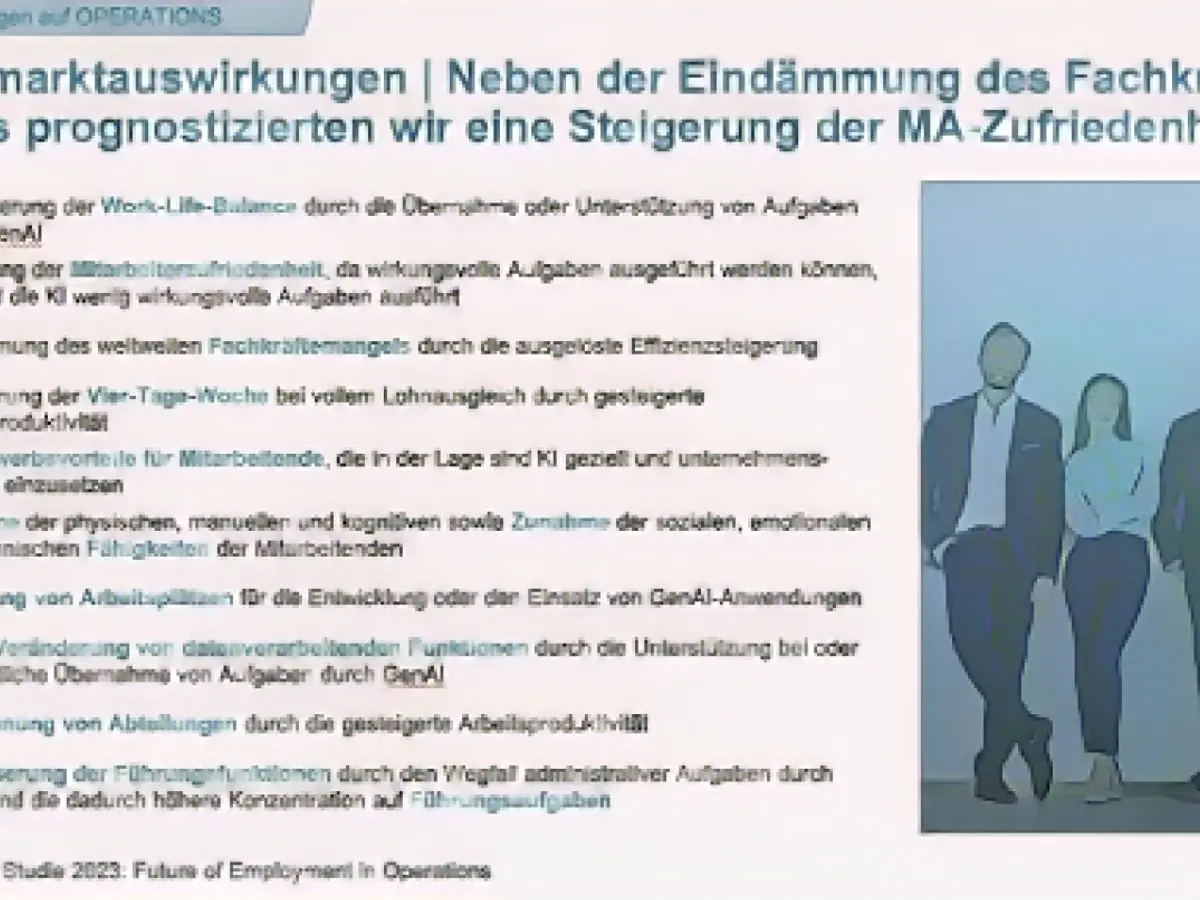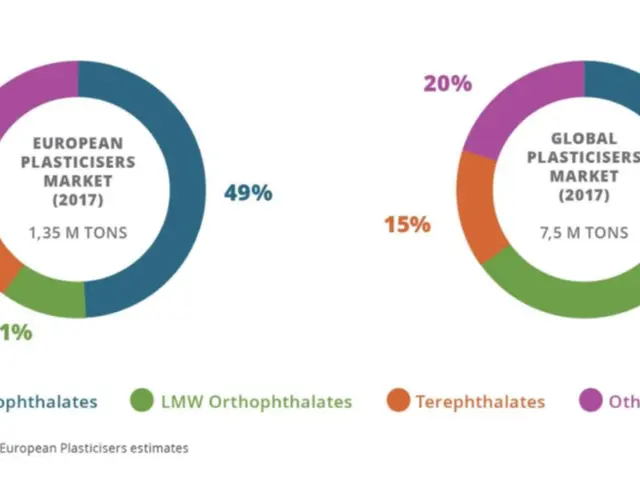Title: Revolutionizing Automotive Production: The Rise of AI and Automation
The AI revolution isn't just a buzzword anymore; it's an integral part of our daily lives. But in the automotive industry, AI is shifting gears towards enhancing production efficiency and reducing costs, as algorithms predict potential errors and boost quality. This move comes in handy during the expensive shift towards electromobility where competition is fierce.
However, this is just the beginning. According to Horváth's research, there's still substantial potential for automation in manufacturing through AI. This focus is on generative AI—the technology that unveils novel creations rather than only improving existing ones. While manufacturing itself is quite efficient, there's a vast untapped area of related tasks. These include product design, development, production planning, supply chain management, and logistics planning.
By 2029, Horváth predicts that generative AI (GenAI) will automate these tasks. If AI takes over the majority of tasks, it will leave fewer tasks for humans. This scenario raises serious questions on the future of jobs. The study ranks jobs by their automation potential, up to 80%. The list runs from production controllers and software developers at the top to project managers and department managers with lower percentages.
Tobias Bock, the study's director, clarifies that while the list could suggest 80% of jobs in the top-ranked positions may no longer exist, the remaining individual will merely monitor or validate AI outputs. The challenge lies in retraining employees who have held these positions for decades.
The generative AI wave will bring about a radical reshaping of job profiles, especially in management positions. Horváth assigns up to 40% automation potential to managerial tasks such as team leadership, department management, and managing directorship. So, the robo-manager may soon take over tasks like financial monitoring, number crunching, and operational procedure analysis, leading to an automated corporate strategy development.
Bock, however, believes managers' roles will not vanish entirely. Rather, they will shift towards dealing with emotional, ethical, and social issues. So, embracing AI, leadership skills, and social competency will become crucial for success in the future.
Reference: stern.de
Additional Insights:
- Generative AI in engineering boosts efficiency, decreases expenses, guarantees consistent quality, improves safety, and secures a competitive advantage by automating monotonous and complex tasks, leading to speedier production and productivity increase.
- In the automotive industry, AI is expected to replace 16% of jobs by 2025 while creating 9% of new roles, resulting in a net 7% loss of jobs.
- The Broman Group has partnered with Digia to integrate automation and AI into financial management, demonstrating adaptability to the AI evolution in various sectors.








